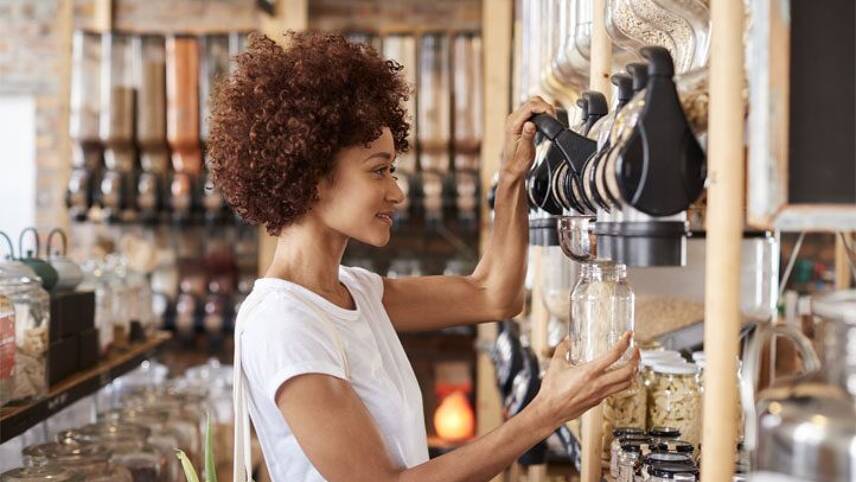Register for free and continue reading
Join our growing army of changemakers and get unlimited access to our premium content

Circular models involve designing out waste and pollution and keeping products and materials in use
Editor’s note: An earlier version of this article appeared on edie.net in January. Kearney then requested updates to some of its figures. This updated version reflects up-to-date, accurate figures.
Conducted by global consultancy Kearney, the analysis is based on a survey of 150 companies globally in sectors including consumer-facing and B2B retail. 51 of these companies were classed as circular economy “leaders”, meaning that either their core business model is non-linear, or that they have recently significantly expanded offerings in this space.
In this group, 32% of respondents reported revenue increases since either launching or scaling up circular economy offerings. This was partly due to an uptick in customer loyalty and brand recognition.
Moreover, 38% reported cost-savings benefits.
Companies in this group that had recently switched to circular products and models reported an improvement of 6% or more in their overall business activities. Most respondents attributed this to the growing consumer demand for sustainable products and services. On average, members of the 51-strong cohort of leaders experienced 50% higher customer loyalty and 70% higher brand recognition.
Green groups have repeatedly warned that linear business models come with long-term risks in terms of climate change, biodiversity loss and resource scarcity. On the latter, research from Circle Economy concluded that just 9% of the 100 billion tonnes of virgin materials extracted annually are reused or recycled.
Now, Kearney is warning that businesses that fail to adapt to these trends will lose customer and investor support in the near term.
Kearney partner Yelena Ageveva-Furman said: “The report reveals that the benefits of adopting circular strategy are not singularly environmental. In fact, those implementing circular initiatives are reaping both monetary and reputational advantages. In the Fourth Industrial Age, it pays to be sustainable, and those who persist with the unsustainable ‘take-make-waste’ economy will inevitably start to lag behind.”
Circular success stories
Among the circular economy “leaders” polled by Kearney is the world’s largest furniture company, Ikea. Ikea is striving to design products using only renewable and recycled materials by 2030, as part of a broader ‘net-positive’ strategy and, according to its latest sustainability report, has applied circular design principles to 80% of product lines globally.
Away from the design and manufacturing part of the product life-cycle, Ikea offers several take-back schemes in which furniture is recycled or repurosed and then resold at a discount. The retailer is partnered with the Ellen MacArthur Foundation to help further embed circular principles and models at all stages of the product lifecycle.
Elsewhere, fashion rental start-up By Rotation doubled its members in just six months during 2020, and also recorded a 130% increase in listings. Retail giants including Selfridges and H&M have taken heed and are piloting rental in their flagship stores. Analysts at GlobalData have predicted that the UK’s fashion rental market will be almost six times larger in 2029 as it was in 2019.
And, of course, one of the most popular circular business models is refill. TerraCycle’s Loop recently launched in the UK via Tesco, following successful rollouts in the US and France. Chief executive Tom Szaky told edie recently that levels of interest are now similar to pre-pandemic levels, when a brand a day would be signed up. Similarly, Marks & Spencer has expanded its own grocery refill offering in recent weeks.
Join the conversation with edie’s Circular Economy Inspiration Sessions
On 25 March, as part of its special Circular Economy Week of online content and events, edie is hosting three live, interactive webinar presentations and discussions – all dedicated to accelerating the transition to a zero-waste economy.
Called the Circular Economy Inspiration Sessions, the three events, range from Q&A style debates with circular economy experts, business-led panel discussions and a masterclass. Experts from organisations including the Ellen MacArthur Foundation and The Body Shop are taking part.
For full details and to register, click here.
Sarah George


Interesting Numbers! Where can we find more information about the Kearney survey? Thank you! /Jan Agri, Tricircular AB.